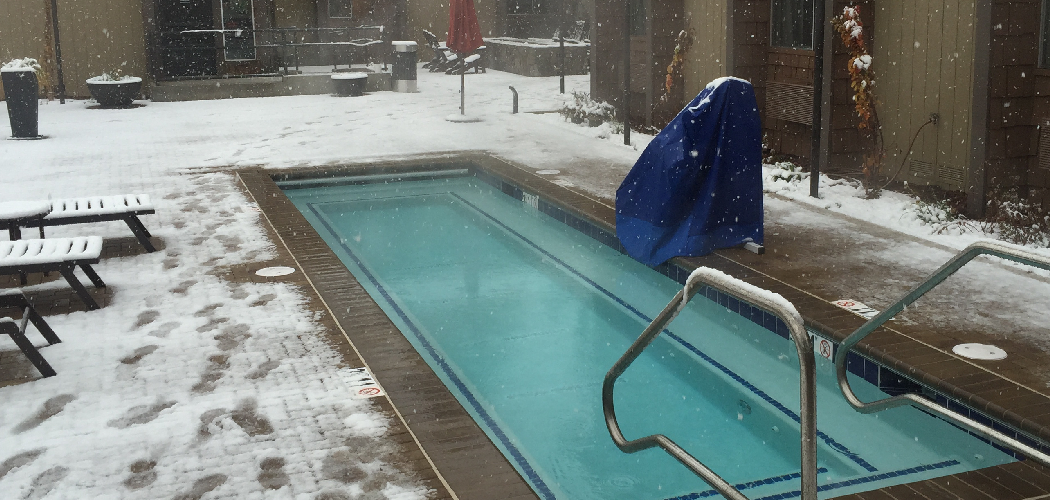Keeping a pool from freezing is crucial, especially in colder climates where freezing temperatures can cause significant damage to the pool and its equipment. Preventing freezing requires proactive measures to ensure the pool remains in good condition year-round.
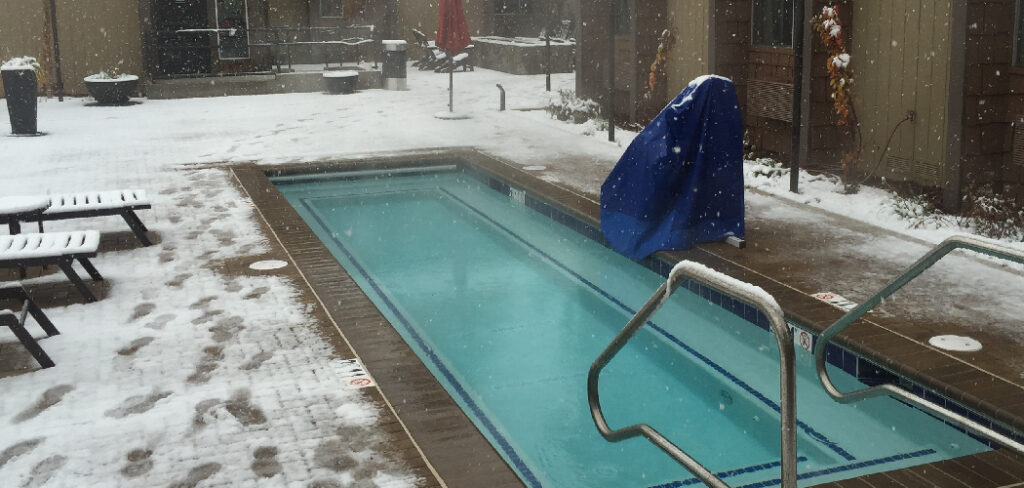
This article provides essential tips and strategies on how to keep a pool from freezing. From properly winterizing the pool and installing a pool cover to using pool antifreeze and running the pool pump, this comprehensive guide offers valuable insights to protect your pool from the damaging effects of freezing temperatures.
By implementing these preventive measures, pool owners can maintain their investment, extend the lifespan of their pool, and enjoy a trouble-free swimming experience when the warmer months return. Let’s dive in and discover how to safeguard your pool from freezing temperatures.
What Do I Put in My Pool to Keep It from Freezing?
To keep your pool from freezing, you can add chemicals that will lower the freezing point of water in your pool. Certain acids or salts can be added to the pool to make it less likely to freeze. Examples include calcium chloride, potassium monopersulfate (MPS), and sodium bicarbonate (baking soda). These chemicals are available at most pool supply stores.
When adding chemicals, it’s important to follow the directions on the product label and consult a professional if you need help. Additionally, you should test the pH level of your pool regularly to make sure it is within the recommended range. This will ensure that the chemicals added to prevent freezing are working properly and not negatively affecting your pool water chemistry.
It may also be helpful to install a heating system for your pool in cold climates where temperatures can drop below freezing during winter months. Heaters can maintain a comfortable temperature in the pool and reduce the chances of it freezing over.
If installing a heater isn’t feasible or cost-effective, be sure to cover your pool with an insulated blanket or tarp to prevent cold air from getting in during winter months. This will help keep the pool warmer and reduce chances of freezing over.
Can a Pool Freeze Completely?
Yes, a swimming pool can freeze completely. When the temperature drops too low, the water in the pool will become solid ice. This is dangerous, as a thick layer of ice can create extra pressure on the pool walls and cause structural damage. It is best to take proactive steps to keep your pool from freezing, such as using a winter cover or circulating the water with a pump.
These steps will help ensure that your pool remains safe during cold weather. It is also important to talk to a professional pool technician if you are unsure of how best to keep your pool from freezing. They can provide additional advice and solutions that may be suitable for your specific situation. Taking the right precautions when winter arrives can help protect your pool and ensure it remains in good condition for years to come.
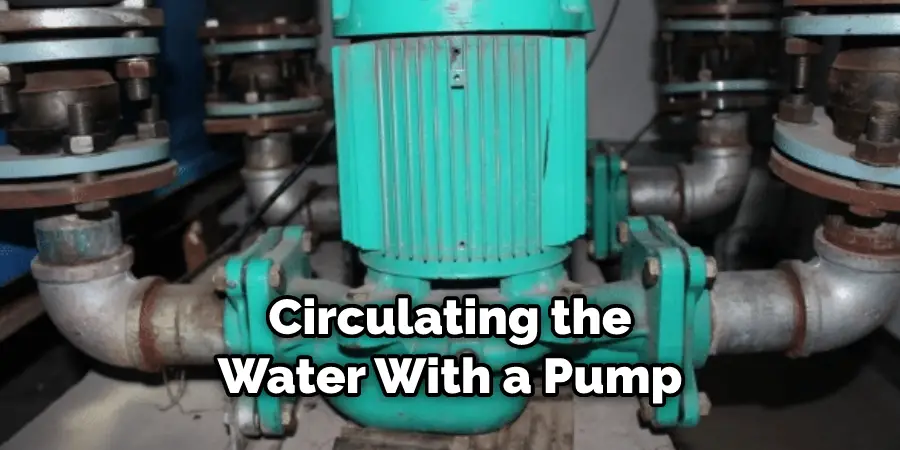
When freeze-proofing your pool, it is also important to check the temperature of the water. Even if you have taken all the necessary steps to keep your pool from freezing, it may still be possible for the water to freeze in extreme cold.
Check the temperature of the pool regularly throughout the winter and take additional steps if necessary to keep it from reaching a temperature too low for freezing. If you do start to feel that your pool is frozen, take extra precautions and contact a professional.
10 Methods How to Keep a Pool from Freezing
1. Use a Pool Cover
One of the best ways to keep your pool from freezing is to use a cover. Pool covers help to insulate the water and keep heat in, which can prevent the water from freezing even in very cold weather. There are a variety of different types of pool covers available, so be sure to choose one that is right for your climate and your pool.
If you live in an extremely cold area, a winter pool cover can be helpful to keep your pool from freezing. However, make sure to follow the manufacturer’s instructions for the installation and maintenance of your pool cover.
2. Use a Pool Heater
Another way to keep your pool from freezing is to use a heater. Heaters work by circulating the water and keeping it at a consistent temperature. This can be an effective way to prevent the water from freezing, but it will also increase your energy costs. Be sure to weigh the pros and cons of using a heater before making a decision.
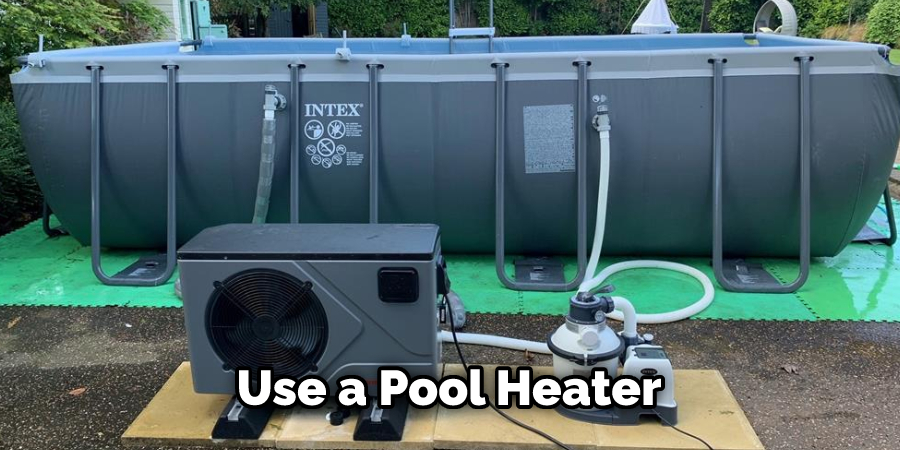
3. Change the Water Regularly
If you live in an area with very cold winters, you may need to change the water in your pool more frequently than usual. This is because the water will cool down faster in colder weather, which can make it more likely to freeze.
Be sure to check your local weather conditions and plan accordingly. If you have an above-ground pool, you may want to invest in a winter cover to help keep the water warm. Additionally, adding a pool heater can help keep the water at a comfortable temperature all winter long.
4. Add Antifreeze to the Water
Adding antifreeze to the water is another way to keep it from freezing. Antifreeze works by lowering the freezing point of water, which can help to prevent it from freezing even in very cold weather.
However, antifreeze can be toxic, so be sure to use it safely and follow all instructions carefully. It is important to use the right type of antifreeze for your pool, as different types can be formulated with different levels of toxicity.
5. Insulate the Pipes
Insulating the pipes is another way to prevent the water from freezing. This can be done by wrapping them in insulation material or by using heat tape. By insulating the pipes, you can help to keep the water flowing and prevent it from freezing in the pipes. Additionally, it is important to make sure all exposed pipes are insulated, especially those near the pool.
6. Use a Circulating Pump
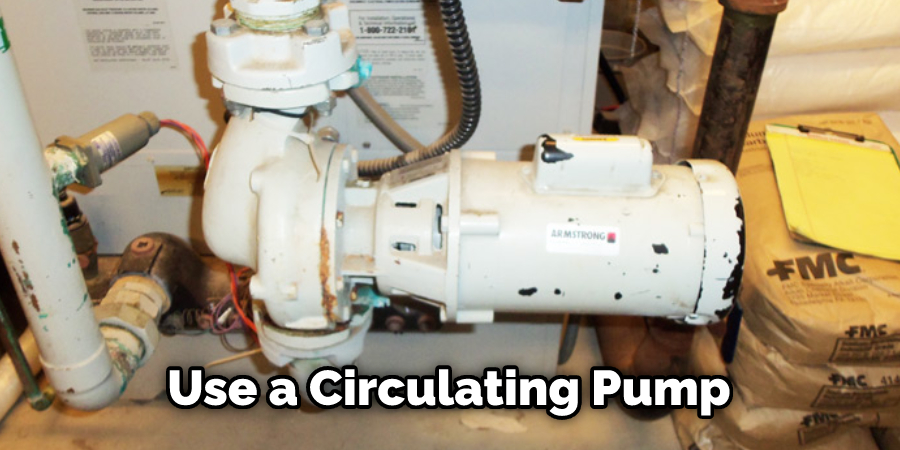
A circulating pump helps to circulate the water in your pool and prevents it from sitting stagnant. This can help to prevent the water from cooling down too much and freezing over. Circulating pumps are typically used in above-ground pools, but they can also be used in inground pools as well.
Make sure to use a pump that is large enough for your pool, otherwise, it won’t be able to effectively maintain the circulation of the water. You should also check the energy efficiency ratings of the pump before buying it, as this will determine how much power it uses and how much money it will cost to run.
7. Use a Solar Blanket
A solar blanket is a type of cover that helps to trap heat in the pool and prevent it from escaping into the atmosphere. Solar blankets are made of special materials that allow sunlight through but trap heat underneath.
This can help to raise the temperature of the pool and prevent it from freezing over. Solar blankets can also reduce evaporation and keep debris from getting into the pool. Make sure to get a solar blanket that is specifically designed for outdoor swimming pools.
8. Use a Bubbler
A bubbler is a device that helps to circulate air through the water in your pool and prevents it from becoming stagnant. Bubblers typically attach to the side of the pool and work by blowing air into the water, which helps to keep it moving and prevents it from cooling down too much and freezing over.
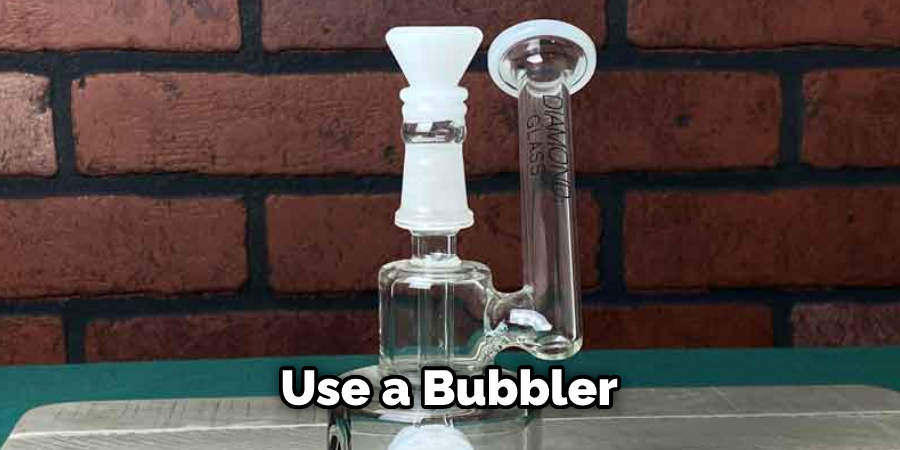
If you’re worried about your pool freezing, a bubbler is an easy and effective solution. Additionally, the bubbler can help to keep the water clean by helping to filter out debris and preventing it from settling on the bottom of the pool.
9. Install Windbreaks
Installing windbreaks around your pool can help to protect it from strong winds that can cause evaporation and cooling of the water. Windbreaks can be made of fencing, trees, or shrubs placed around the perimeter of the pool area.
Additionally, windbreaks can also help to protect against snowdrifts that can accumulate and add extra weight onto the pool cover or cause ice formation. Make sure to leave enough space between the windbreaks and the pool so that air can still flow and circulate.
10. Contact a professional
If you are still having trouble keeping your pool from freezing, contact a professional. A qualified technician will be able to assess your situation and offer advice on the best course of action. They may be able to suggest additional ways to prevent freezing, such as installing a pool cover or a heater.
They may be able to offer you advice on how to maintain your pool in the winter months, as well as any other issues you may be having. Taking the time to speak with an expert can help ensure that your pool remains in good condition during winter and is there for you to enjoy in the spring.
Conclusion
In conclusion, taking the time to properly prepare your pool against the cold winter months is essential for a long-lasting, effective system. Utilizing an in-ground or above-ground cover, proper chemicals for filtering, a pool heater, and an array of insulation materials can protect your pool from freezing even in the coldest regions.
The freeze prevention strategies implemented today will save you time and money for years to come as you can be sure of having a safe and functional swimming pool year round. So what are you waiting for? Hopefully, this article gave you some helpful tips about how to keep a pool from freezing successfully, so now that you have the proper knowledge on how to get the job done, why not give it a try today?

